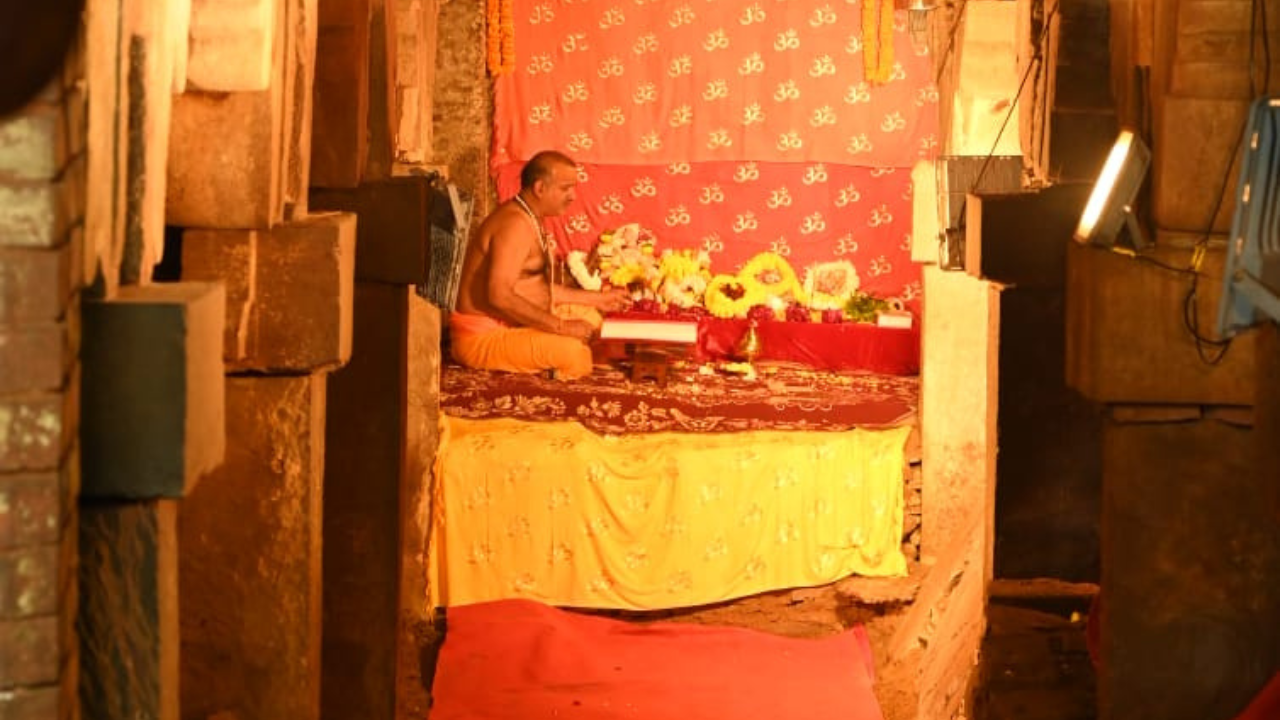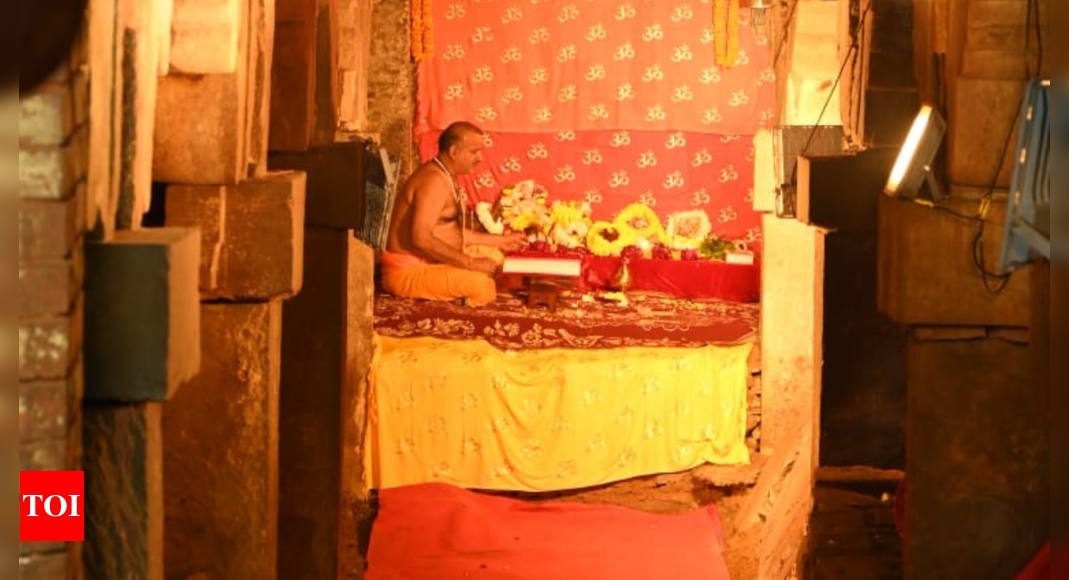
NEW DELHI: Devotees on Thursday offered prayers to deities in the southern cellar of Gyanvapi mosque. The prayers took place following the Madhyan Aarti from outside the barricading.
District judge Ajaya Krishna Vishvesha on Wednesday allowed regular worship of Shringar Gauri and other Hindu deities in the southern cellar of Varanasi’s Gyanvapi Masjid by a family of priests that used to perform rituals there prior to 1993.
The judge directed the district magistrate to make proper arrangements, including erecting an iron fence, within seven days so that the plaintiff — head priest Shailendra Kumar Pathak Vyas of Acharya Ved Vyas Peeth temple — and a priest assigned by Shri Kashi Vishwanath Temple Trust can resume daily worship.
Anjuman Intizamia Masajid (AIM), custodian of Gyanvapi mosque, later said that it would challenge the district judge’s order in Allahabad High Court.
Mulayam erected fence, stopped worship at southern cellar in 1993
The case is distinct from the Shringar Gauri litigation initiated by five Hindu women, seeking the right to unhindered daily worship of the deity and other idols within the Gyanvapi compound.
Shailendra Vyas’s plea states that his maternal grandfather, Somnath Vyas, would worship Shringar Gauri and other Hindu deities in the southern cellar until Dec 1993, when the then state administration barred entry into what purportedly used to be known as “Vyasji katehkhana”.
The petition was admitted on Sept 25 last year, over two years after the main Shringar Gauri case was filed in the Varanasi civil judge’s court. District judge Vishvesha took over the Shringar Gauri case on the orders of SC and subse quently clubbed several civil suits linked to Gyanvapi.
Shailendra Vyas’s counsel Vishnu Shankar Jain said the plaintiff’s family had been visiting the southern cellar to worship the deities there “for centuries”.
“In Dec 1993, the then Mulayam Singh Yadav government erected a steel fence without any judicial order, thus stopping the puja,” he said. Besides seeking access to the closed southern cellar of Gyanvapi, his client had petitioned the court to appoint the DM or any other appropriate authority as the “receiver” of that portion of the mosque.
District judge Ajaya Krishna Vishvesha on Wednesday allowed regular worship of Shringar Gauri and other Hindu deities in the southern cellar of Varanasi’s Gyanvapi Masjid by a family of priests that used to perform rituals there prior to 1993.
The judge directed the district magistrate to make proper arrangements, including erecting an iron fence, within seven days so that the plaintiff — head priest Shailendra Kumar Pathak Vyas of Acharya Ved Vyas Peeth temple — and a priest assigned by Shri Kashi Vishwanath Temple Trust can resume daily worship.
Anjuman Intizamia Masajid (AIM), custodian of Gyanvapi mosque, later said that it would challenge the district judge’s order in Allahabad High Court.
Mulayam erected fence, stopped worship at southern cellar in 1993
The case is distinct from the Shringar Gauri litigation initiated by five Hindu women, seeking the right to unhindered daily worship of the deity and other idols within the Gyanvapi compound.
Shailendra Vyas’s plea states that his maternal grandfather, Somnath Vyas, would worship Shringar Gauri and other Hindu deities in the southern cellar until Dec 1993, when the then state administration barred entry into what purportedly used to be known as “Vyasji katehkhana”.
The petition was admitted on Sept 25 last year, over two years after the main Shringar Gauri case was filed in the Varanasi civil judge’s court. District judge Vishvesha took over the Shringar Gauri case on the orders of SC and subse quently clubbed several civil suits linked to Gyanvapi.
Shailendra Vyas’s counsel Vishnu Shankar Jain said the plaintiff’s family had been visiting the southern cellar to worship the deities there “for centuries”.
“In Dec 1993, the then Mulayam Singh Yadav government erected a steel fence without any judicial order, thus stopping the puja,” he said. Besides seeking access to the closed southern cellar of Gyanvapi, his client had petitioned the court to appoint the DM or any other appropriate authority as the “receiver” of that portion of the mosque.
Source link

